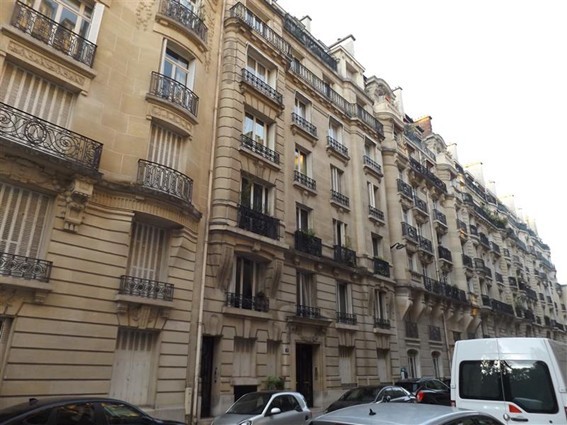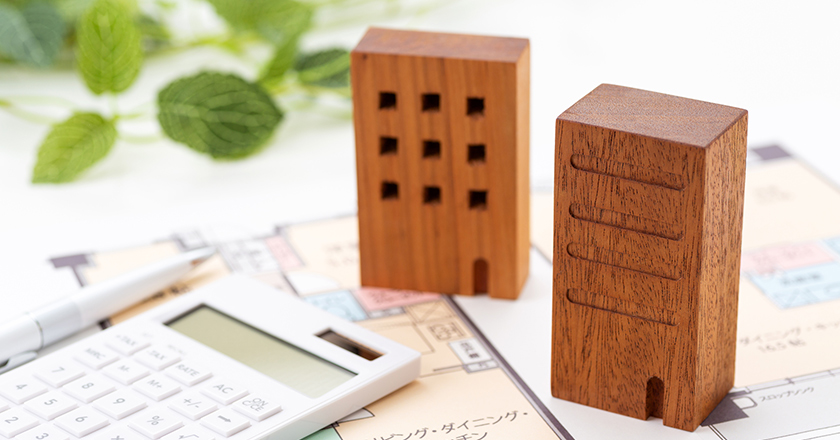Concerns in condominium management with aging residents
According to the fiscal 2023 results of the Comprehensive Survey on Condominiums conducted by the Ministry of Land, Infrastructure, Transport and Tourism (MLIT) every five years, 60.4% of condominium residents expressed a desire to live there permanently, which was the second highest ever. This is down 2.4 percentage points from the previous survey in fiscal 2018 but remains high. The aging of residents is also remarkable. The number of residents aged 30 or younger decreased from 7.1% to 6.2%, while those aged 70 or older increased from 22.2% to 25.9%.
As more people choose condominiums as their final homes or move from single-family houses to condominiums when they become old, more elderly people in condominiums require long-term care or live alone. In addition to making exclusively owned and common areas barrier-free, management associations will likely need to provide more support for the elderly in the future, such as monitoring, living support, and meal services.
Furthermore, a major problem for overall condominium management is that more people may fall behind on management fees and repair reserve funds, as more elderly households live on pensions and are financially strained. If an elderly unit owner who lives alone dies and heirs are unknown, there is also a concern that the management association will not be able to determine where to send management fee bills and meeting notices.
In addition to the aging of residents, leasing and vacancy will lead to a lower attendance rate at management association meetings, fewer applicants for directors, insufficient repair reserve funds, and more condominium owners violating the bylaws of unit ownership. As a result, the management capabilities of condominiums may decline, and the so-called deterioration of condominiums may become a social problem.
I specialize in Japanese and French civil law, in particular real rights law. I think that the legal measures in France regarding condominiums, known locally as appartements, may be useful in Japan as well.
There is already a special law of the Civil Code regarding condominium management in Japan called the Unit Ownership Act, officially titled the Act on Building Unit Ownership, etc. The law designates the management association as the center of management. A management association is an association that all unit owners form. The association holds a meeting (so-called general meeting) once a year to decide on the budget, financial statements and major repairs.
A board of directors is established under the management association. The unit owners select the directors, from whom the president is elected. According to the Standard Condominium Management Bylaws of MLIT, the president is a “manager” (not a janitor) who has the highest management responsibility under the law. However, in Japan, instead of the president creating the general meeting materials themselves, the management company commissioned by the management association typically supports the preparation.
While the number of cases may still be small in Japan, for reasons such as the aging of the unit owners, the issues of not wanting to participate in the management association or not being able to attend may increase in the future. In particular, they may not want to serve as directors.
Directors are not paid, and many condominiums have a rotating system. If more directors cannot be appointed owing to age or health reasons or constantly missing board meetings, the shortage of directors will become serious. It can result in a situation where residents’ decision-making stalls and repairs are delayed.
France has initiated legal measures against dilapidated condominiums
On the other hand, the French unit ownership law has a program for “condominiums in difficulty” that is unique even on a global scale. In France, all unit owners form a management association and make decisions at meetings, a practice common to Japan. However, when the condominium is dilapidated, the legal system differs in terms of possible responses.
In 1990s France, amid economic stagnation, the number of dilapidated condominiums increased mainly in the banlieues (suburbs surrounding large cities) owing to the rise in unemployment and spread of delinquent management fees, becoming a social problem. To cope with this situation, the program for condominiums in difficulty was introduced through a revision of the law.
Under this program, which considers the deterioration of a condominium to be a malfunction of the management association, a judiciary judge appoints a provisional manager if the balance of income and expenditure is deemed to be seriously impaired or if maintenance is deemed to be difficult. The provisional manager is delegated many of the management association’s authorities to consolidate debts, prepare repayment plans, and order necessary repairs.
It is a program similar to a corporate reorganization to gradually restore normal management. The program has been strengthened year by year by revisions of the law, and it is said to have been effective to a certain extent in addressing dilapidated condominiums, though not in every case.
As the current situation in Japan is not as serious as in 1990s France, we cannot say that a similar system should be introduced immediately. However, there is no guarantee that management associations will never become dysfunctional owing to aging or economic factors. I believe it is meaningful to understand the French system as a reference for such situations.
Another uniqueness of the French system is that a specialized property management company is typically appointed as the manager (syndic), making third-party management the mainstream.
In Japan, too, management companies often make substantive proposals, but in France, specialized companies are legally positioned as managers, with third-party management taking root as a system. In addition, while many management companies in Japan are affiliated with major developers, France has many small and medium-sized family-run companies rooted in local communities. This creates slight differences in the perception of their relationships and scale.
Understanding foreign laws can contribute to the development of Japanese law
Furthermore, French law defines the voting requirements for meetings in greater detail than Japanese law does, but these requirements have been gradually relaxed in recent years. This may be due to the traditional culture of using old buildings for a long time.
Indeed, in places like Paris, stone buildings more than a hundred years old are still in use, and in some cases are even sturdier than newer buildings. On the other hand, most of the dilapidated condominiums that have become a social problem are relatively new reinforced concrete buildings built in the 1960s and 70s.

(Photographed in August 2023 by Kamano Kuniki, Professor Emeritus at Waseda University)
However, even though natural disasters are less frequent there and traditional buildings are sturdy, as long as people live in them, they need various renovation work.
Improvement or repair work, which changes a part of the building, is often considered to be inherently subject to strict voting requirements, such as the approval of the overwhelming majority of the unit owners. However, the requirements are less strict in France, though they are subject to specific provisions. For example, construction can be decided by a majority vote.
Incidentally, the Japanese Unit Ownership Act does not specify a very detailed voting requirement for such an agenda. In this sense, France can be said to be more agile than Japan in terms of improvements and repairs. On the other hand, frequent and numerous minor revisions seem to be making it difficult for work sites to keep up. In this regard, there are both advantages and disadvantages.
France does not have provisions like those of Japan that in principle allow rebuilding with the approval of over four-fifths of the owners. In effect, unanimous agreement will likely be required. The national character to continue using buildings for a long time could be behind this as well. In fact, we hear from local people that they do not believe buildings have a lifespan.
As dysfunctional management associations become more apparent in Japan, establishing a systematic safety net will become an urgent task. It will not be long before a system to support the maintenance and management of condominiums through legal intervention, similar to France’s, is considered for introduction. In doing so, I feel that it is our duty as legal scholars to consider the design of a flexible system that aligns with the realities of Japanese society, rather than to simply imitate foreign systems.
If you live in Japan, you may not be very aware of foreign laws. But, in fact, they can provide insights into legal challenges that may arise domestically in the future. As Japanese law is influenced by French law in the first place, learning the practice of modern French law is useful for improving and refining Japanese law. Through my research on French law, I hope to continue contributing to the development of Japanese law.
* The information contained herein is current as of May 2025.
* The contents of articles on Meiji.net are based on the personal ideas and opinions of the author and do not indicate the official opinion of Meiji University.
* I work to achieve SDGs related to the educational and research themes that I am currently engaged in.
Information noted in the articles and videos, such as positions and affiliations, are current at the time of production.

